Absolutely the best attorney for getting your VA benefits. After 7 years of denial, I found Brendan Garcia of VetLaw, He reviewed my case, set up a plan , scheduled my video hearing in front of a Veteran law judge, flew out to Phoenix to be there with me during the hearing. Hired a doctor to help draft a report to help my case. When all the smoked cleared, I’m now collecting max disability monthly, back pay beyond my wildest dreams. Brendan Garcia never stopped. He is an expert in Veterans law. Best decision of my life was to have him on my side. Bar none, Brendan is a terrific VA benefits attorney!
Vet Law represents claimants before the Court of Appeals for Veterans Claims. This Court is not part of the Department of Veterans Affairs. Rather, the Court of Appeals for Veterans Claims is a federal court that hears a veteran’s appeal of the Board of Veterans’ Appeals decision.
The Board’s decision represents the VA’s final action in the claim. However, the CAVC court has the jurisdiction to review—and, if warranted—vacate or reverse the VA’s decision.
Read More about Understanding BVA and CAVC ClaimsBelow, you’ll find case summaries highlighting our strategies and outcomes in cases before the CAVC court.
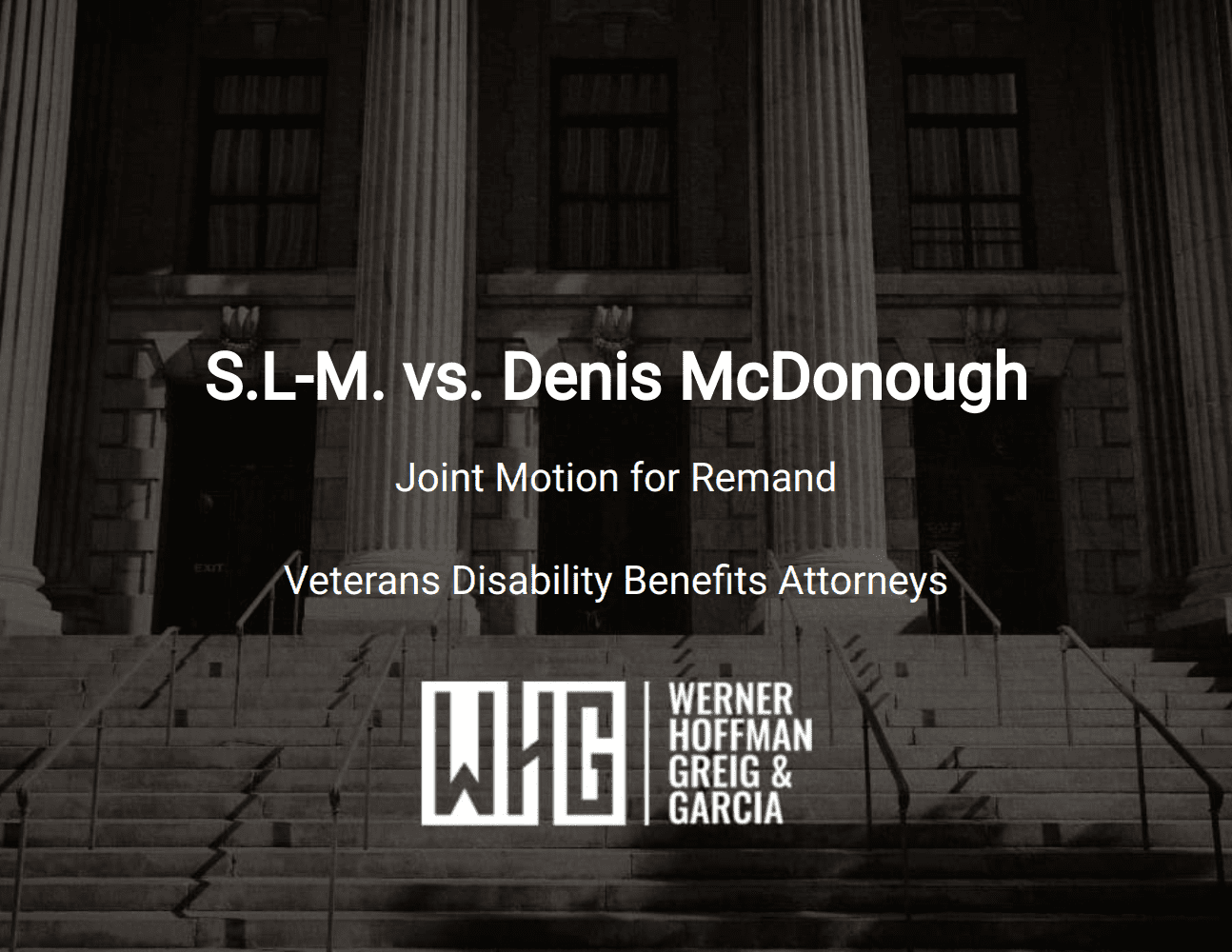
S.L-M. vs. Denis McDonough
March 4, 2024
The Court of Appeals for Veterans Claims recently vacated and remand a Board of Veterans’ Appeals decision in favor of a veteran whose active-duty service had been overlooked by the Board. The Court ordered a remand, requiring the Board to reexamine key evidence. In its May 17, 2023 decision, the Board incorrectly determined that the […]
Read More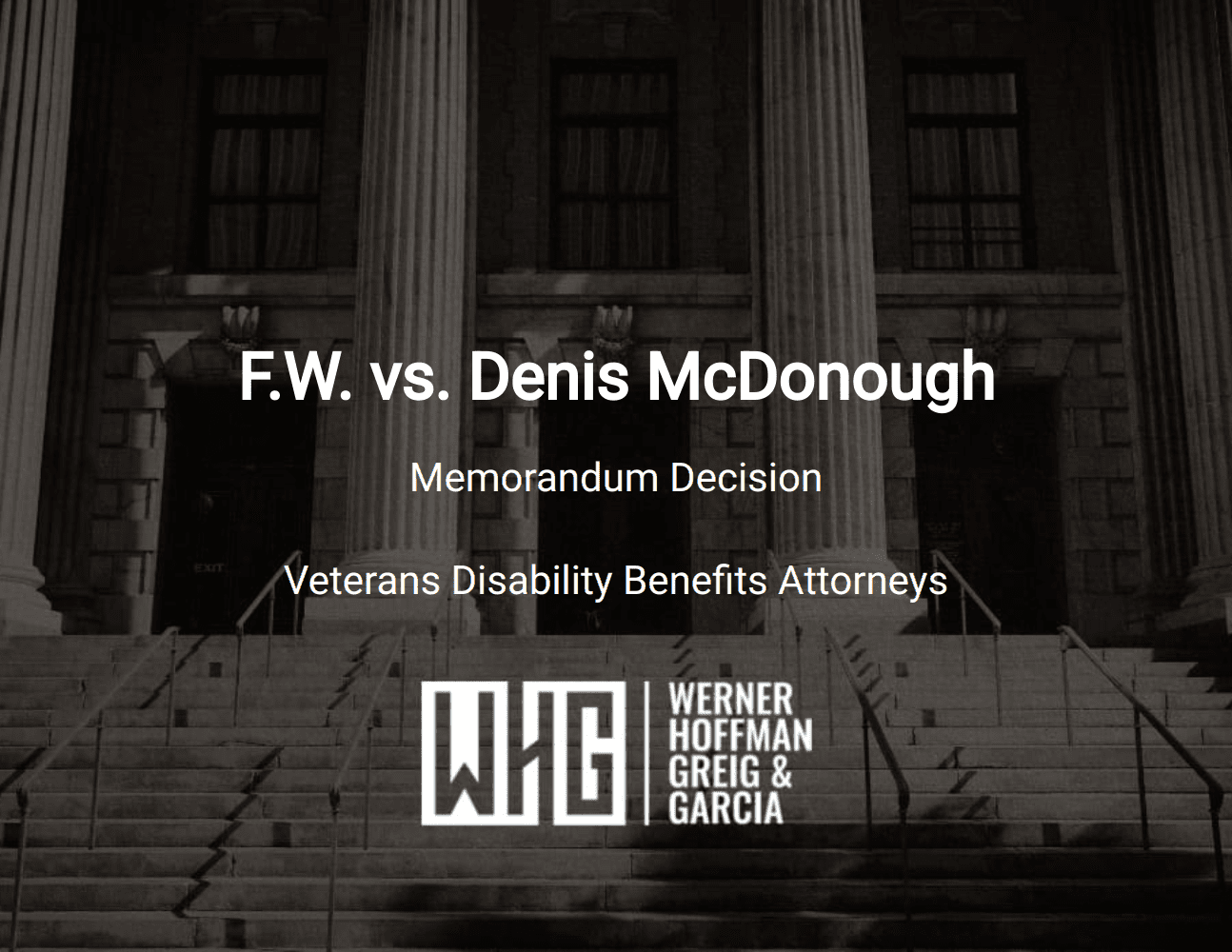
F.W. vs. Denis McDonough
February 29, 2024
Veterans Court Victory: Client’s PTSD Claim Remanded for Reconsideration Our firm recently achieved a significant win for a U.S. Army veteran at the Court of Appeals for Veterans Claims. The veteran served from 1978 to 1984 as a hospital food services specialist. He sustained injuries during service, including a traumatic incident involving his forehead and […]
Read More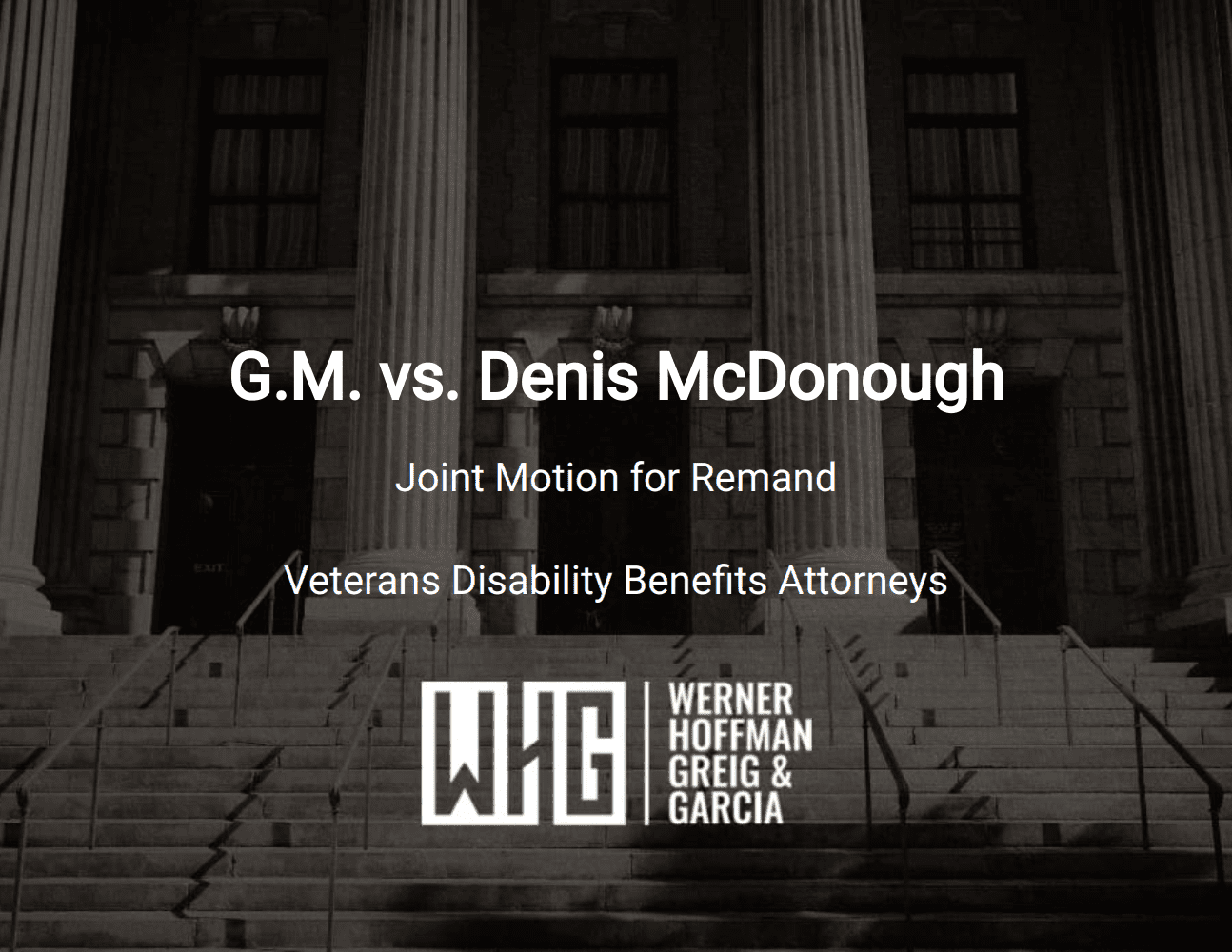
G.M. vs. Denis McDonough
February 29, 2024
In a recent victory, we convinced VA’s attorneys that the appropriate action was to vacate and remand a case involving a veteran’s obstructive sleep apnea claim. They agreed that the Board of Veterans’ Appeals failed to follow previous remand instructions. The veteran’s claim stems from a November 2006 sleep study, where a diagnosis of obstructive […]
Read More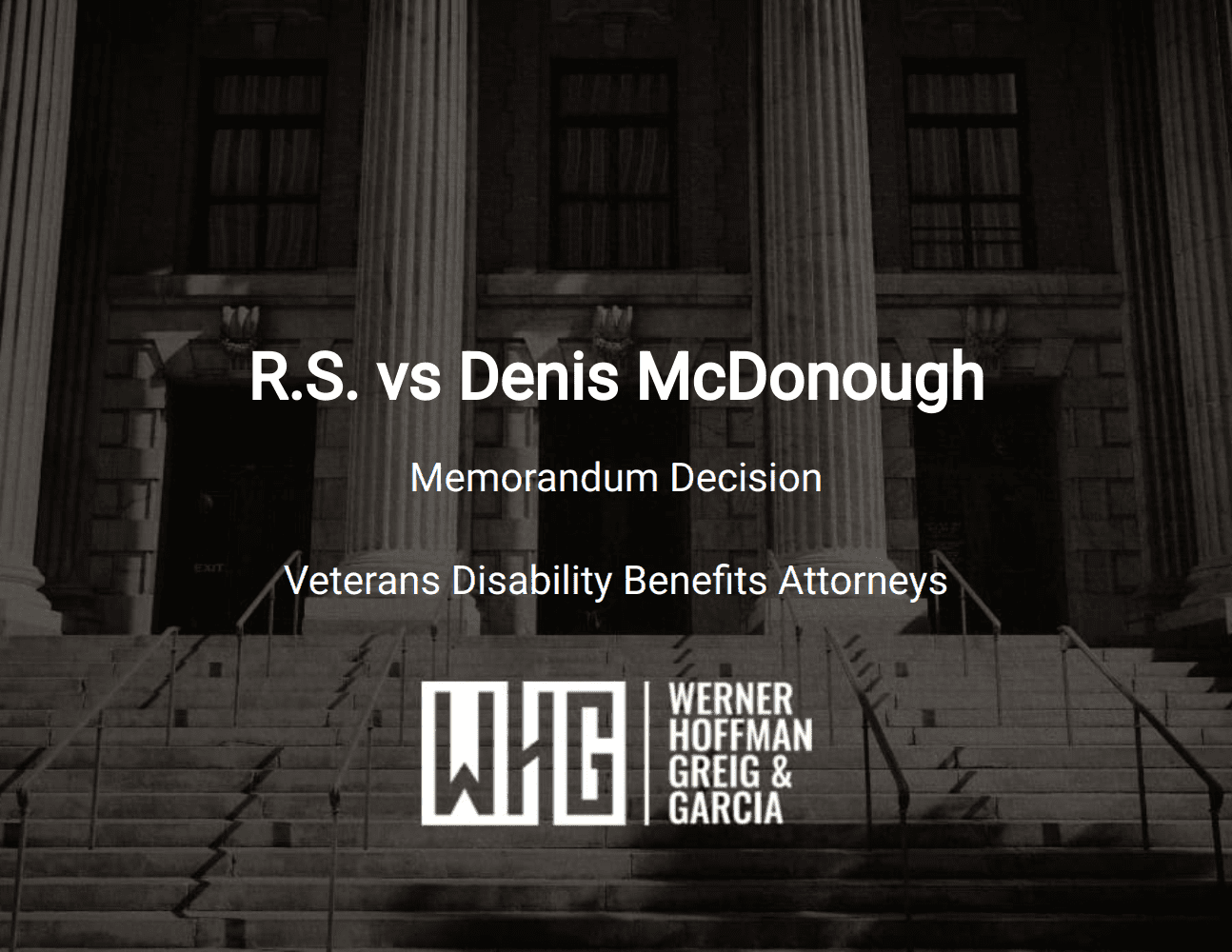
R.S. vs Denis McDonough
February 27, 2024
Our firm recently secured a victory for our client veteran at the Court of Appeals for Veterans Claims (CAVC). We appealed a Board of Veterans’ Appeals decision from February 2023 that denied him an initial disability rating above 50% for his depressive disorder. The veteran, a U.S. Army and Air Force veteran, argued that the […]
Read More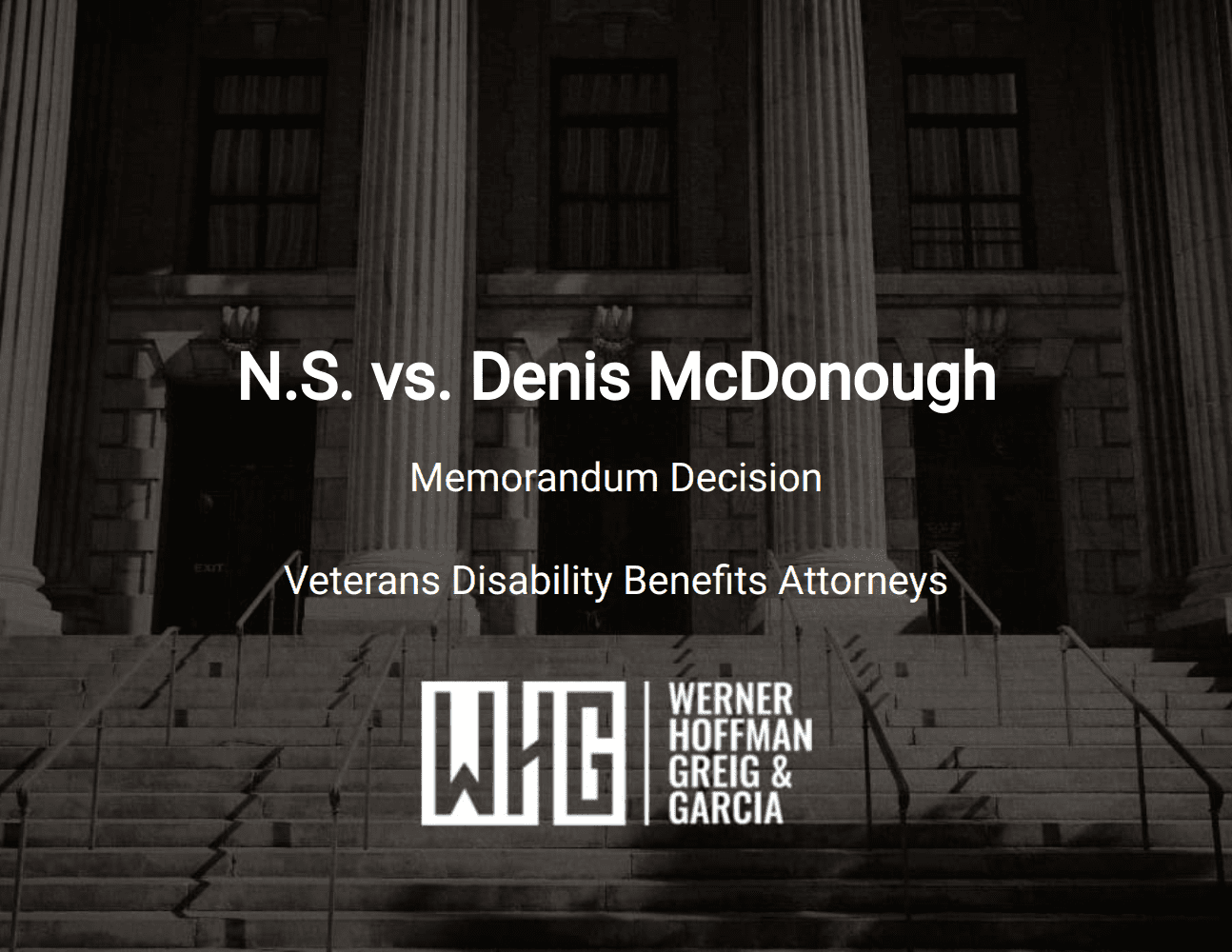
N.S. vs. Denis McDonough
February 27, 2024
Our client, an Air Force veteran, recently achieved a significant victory before the Court of Appeals for Veterans Claims. The veteran sought an increase in his 50% disability rating for Major Depressive Disorder (MDD), arguing that his condition warranted a higher evaluation. The Board of Veterans’ Appeals denied his appeal, but failed to address crucial […]
Read More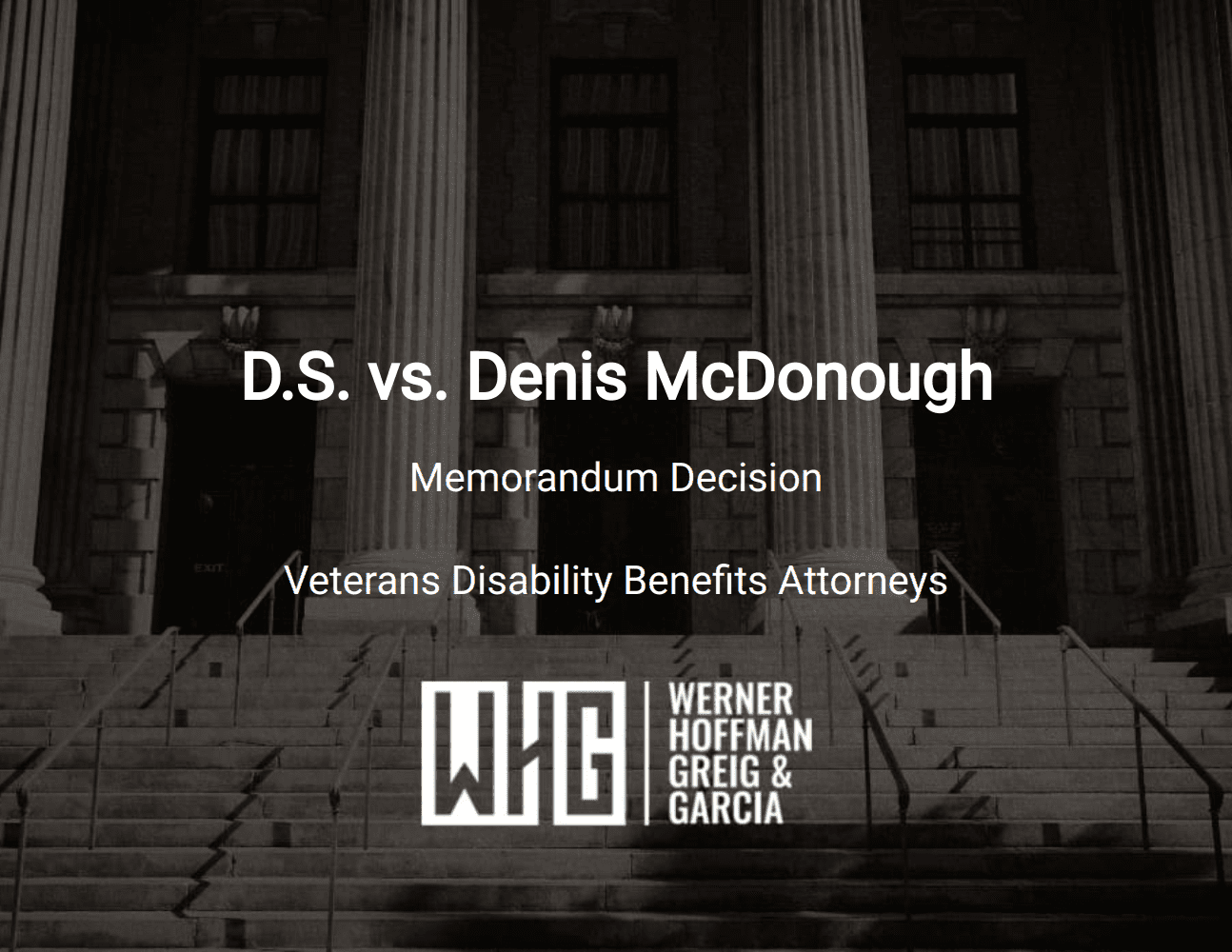
D.S. vs. Denis McDonough
February 27, 2024
Our client recently secured a key victory before the Court of Appeals for Veterans Claims. He served in the U.S. Army from 1994 to 1996 and from 1999 to 2012. In 2011, while still in service, our client filed a claim for a left foot disability following a bunionectomy. The VA initially granted a noncompensable […]
Read MoreQuestions about CAVC
What is the Court of Appeals for Veterans Claims?
The Court, commonly referred to by the acronym CAVC, was established by Congress in 1988 to review VA’s decisions on veterans’ disability claims. Claimants can appeal decisions by the Board of Veterans’ Appeals to the Court to correct any errors in the Board’s decision
How long do I have to file an appeal?
Claimants have 120 days from the date of the Board of Veterans’ Appeals decision to notice an appeal to the Court.
What does it cost?
The exact worth of a personal injury claim can vary based on a number of factors. Some key factors include the extent of the injuries, the costs involved, and the liability of the involved parties. Ultimately, the potential compensation is unique to your situation. Speak with our team to understand the particulars
What options do I have after receiving a decision from the Board of Veterans’ Appeals?
For claims still in the legacy system, an appeal to CAVC is a claimant’s only option to correct an erroneous Board decision. This is generally the rule for Regional Office decisions that pre-date February 19, 2019, for which a VA Form 9 was filed to appeal.
Under the Appeals Modernization Act (AMA), claimants still have the option to appeal to CAVC but can also file a supplemental claim within one year of the Board’s decision. Claimants are allowed to do both at the same time (appeal to CAVC and file a supplemental claim). The modernized system generally applies to Regional Office decisions that post-date February 19, 2019, or where the claimant has opted into the new system.
Claimants must submit new and relevant evidence with a supplemental claim.
Do I have to have an attorney to appeal to CAVC?
An attorney isn’t required; claimants can file their own appeal and represent themselves before the Court. But your best chance of winning your appeal is through someone well-versed in veterans law who can spot any errors made by the Board. Cases at CAVC are adversarial, meaning the claimant and VA are on opposite sides arguing for and against. In every appeal the VA will be represented by an attorney who will argue that the Board made no error and that VA’s decision should be affirmed.
What does a CAVC “win” look like?
When the Court finds the Board erred in its decision, the Court will most often vacate the Board’s decision and remand the claim back to the Board to correct its error and issue a new decision. Occasionally, where the Board’s error is so egregious, the Court will reverse the Board’s finding. Even in this situation, the Court will remand the claim back to the Board for it to issue a new decision.
What’s important to understand is that the Court does not grant or deny claims. Rather, it sits more like a referee to ensure the VA complies with the law and properly applies the facts of each claim to the controlling rules and regulations.
How long does a CAVC appeal take?
On average anywhere from six to eight months to one to two years. For appeals where the claimant is represented by an attorney, the Court provides a process where the two parties can agree the Board erred. This occurs before the parties begin the formal briefing process and, if the Secretary concedes error, can result in a remand within six to eight months of filing the appeal. For claimants represented by attorneys this is the most common result.
For cases that undergo formal briefing that must be reviewed by one of the Court’s judges, it can take roughly one to two years after filing the appeal to get a decision.
What are my options if CAVC affirms the Board’s decision?
Claimants can appeal CAVC decisions to the Court of Appeals for the Federal Circuit and, if necessary, to the U.S. Supreme Court.
For claims governed by the modernized appeals system, claimants can also file a supplemental claim within one year of the Court’s decision. However, the supplemental claim must be accompanied by new and relevant evidence to trigger VA’s obligation to adjudicate the claim.










